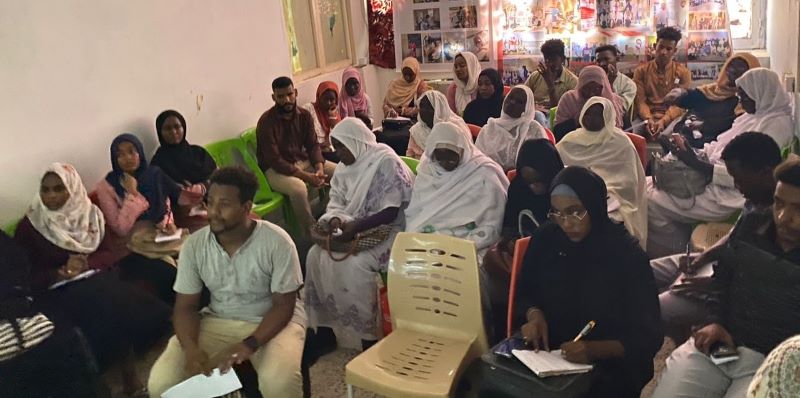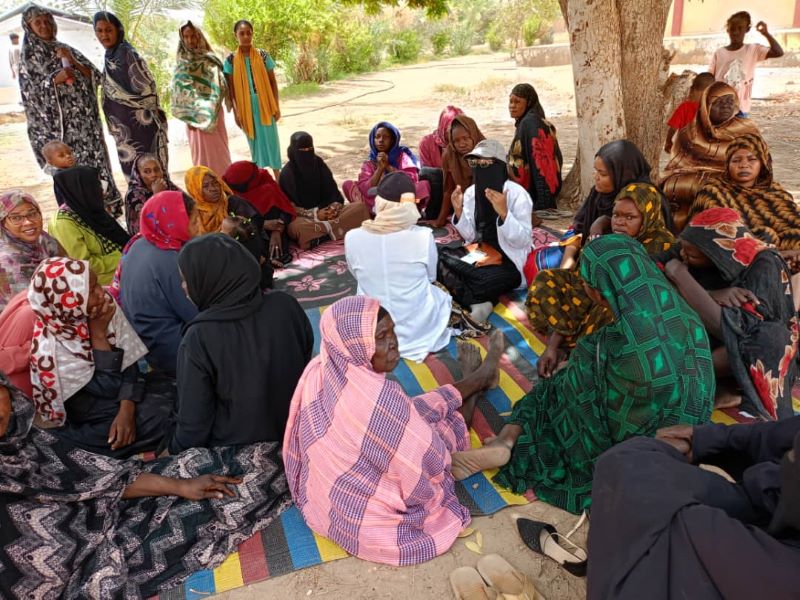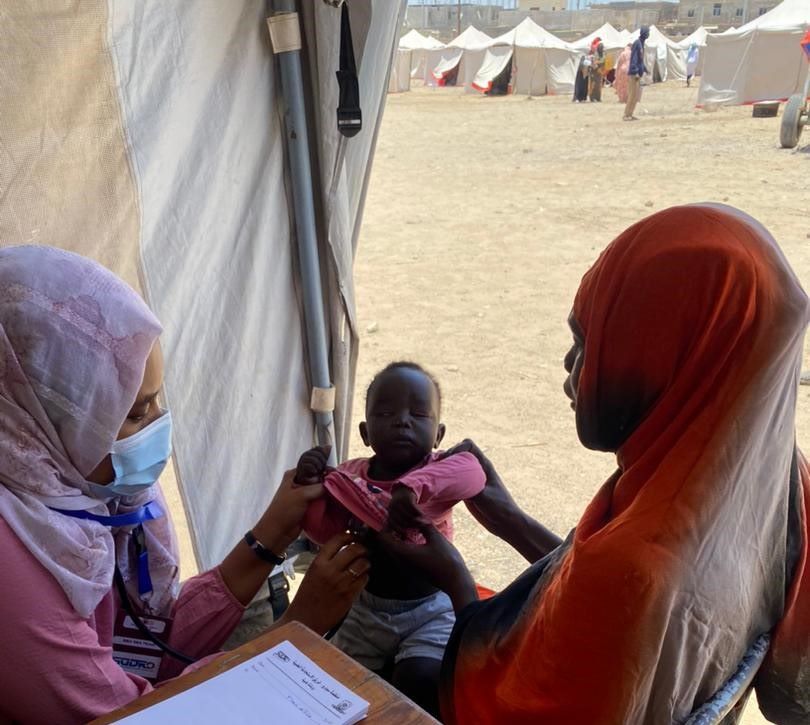“In addition to targeting the population, there has been a systematic targeting of hospitals and health care professionals in those regions,” says Dr. Nada Fadul, a Sudanese-American professor at the University of Nebraska. “Right now, 70% of the hospitals in Sudan are inoperable.” Dr. Fadul first worked with Project ECHO in 2020 to launch a nationwide vaccine outreach effort; in 2022, she founded the Sustainable Development Response Organization to support community-led efforts.
Now, the need has changed. Health workers are responding to rape and other gender-based violence. “The survivors who were brave enough to open up,” says Dr. Fadul, “share stories that are horrific – and what we’re hearing is probably just the tip of the iceberg. It became very apparent that caring for women had to be an essential component of our response.” SuDRO is mounting a comprehensive response, as best as they can, by training providers on how to address the physical and mental traumas women and children are suffering across the country.
Over the Bodies of Women
“In Sudan, the war is happening over the bodies of the women,” says Dr. Abrar Alalim, president of SuDRO. “Women have been facing many, many issues and inequalities when it comes to health. So, after the war they have almost no access to any of the health services that women and girls need. We knew that we had to do something.”
“People don’t talk about sexual violence in Sudan, because it’s a huge stigma,” adds Dr. Fadul. “If a girl has been sexually violated, it complicates her chances of living a traditional life. Because her virginity has been taken away, she may not even get married. People try to conceal that and not talk about it, but many of them present symptoms later. They have complications from rape, including fistulas and other serious health concerns that require specialized attention.”

Medical doctors, midwives and nurses attend a gender-based violence response training. Photo Credit: Dr. Saida Alkhateeb, SuDRO, 2024
Dr. Fadul and colleagues relied on ECHO’s experience responding to the war in Ukraine to pivot, working with colleagues to ensure those on the ground had access experts in humanitarian response, OB-GYN care for women who were raped, and the psychological ramifications of living through and surviving such horrors.
“When a woman presents seeking health care,” says Dr. Fadul, “It’s really important that the health care providers can provide a safe space for that woman to feel comfortable to say, ‘I need help.’ The ECHO training was essential, because we’re not going to be able to find an expert gynecologist in all of these facilities that are operating, but the primary provider, the emergency provider, the house officer who is working in these facilities should have enough basic knowledge to respond to victims of gender-based violence or sexual-based violence. ECHO brought experts from around the globe to teach participants how to handle these sensitivities.”
SuDRO integrated an OB-GYN clinic into their primary health clinic so that survivors have a safe space to request medical attention and seek mental health support within the same clinic.
Flexibility, and Perseverance, in the Face of Adversity
Many of the health workers responding to this crisis were themselves displaced from their homes and workplaces, notes Dr. Saida Alkhateeb, secretary general of SuDRO. The organization has pivoted to a mobile clinic for their health intervention programs.
“It is a more flexible model and lets us reach many different communities. We recruit local community members who are also health professionals, as well as midwives who understood the need for women-to-women support. They rely on ECHO for both guidance in handling complicated situations as well as the support required for serving in the face of such violence,” says Dr. Alkhateeb.

A sexual and reproductive health awareness session in a Northern state of Sudan, as part of the comprehensive response. Photo Credit: Dr. Saida Alkhateeb, SuDRO, 2024.
“The flexibility of ECHO has leveraged everything that we did so far,” says Dr. Alalim. ECHO sessions are often facilitated through Telegram to accommodate the limited internet bandwidth. Sometimes, the sessions take place late at night because Internet connectivity is better.
The first ECHO training in response to the civil war’s extreme violence was in person. “We brought in more than 45 participants—midwives, nurses, medical doctors from villages and from the center of the city—to a training in one of the safer states that was home to large numbers of displaced survivors,” says Dr. Alkhateeb.
“We also ensured that capacity building followed with a comprehensive ‘clinic’ to integrate service delivery. And, we designed the program to be sustainable so that when the midwives returned back to their clinics, equipped with the knowledge they need, they could respond to whatever cases they have and maintain connections with experts when needed,” he adds.
Surviving Today, For a Better Tomorrow
“Since the crisis erupted,” says Dr. Alkhateeb, “health professionals were feeling isolated, dealing with the daily trauma, having to grapple with so much. ECHO was the structured, open tool that they used to navigate the emergency response.”
“At some point, it’s really hard to be able to see beyond what’s the catastrophe that’s happening. Many of us are stuck, we just need to survive,” says Dr. Fadul. “But you can’t really isolate what’s happening to women and what’s happening in the health care system: the solution has to encompass of all of these problems. When we get to the point where we begin rebuilding the health system, we need to leverage what we have learned. Communities should be involved, and the needs of women should always be incorporated and never neglected.”
To learn more about the Sustainable Development Organization (SuDRO) visit their website or email the Project ECHO team.
Related Content:
- Project ECHO on the Frontlines with the Sudanese American Medical Association (March 2024)
- Sudan Tackles UN Sustainable Development Goals with Project ECHO (October 2022)
- Straight Shots: Bringing the COVID-19 Vaccine to Sudan’s People (July 2022)
Featured Image: A sexual and reproductive health clinic for mothers and children at a refugee camp in the Red Sea State, Sudan. Photo Credit: Dr. Saida Alkhateeb, SuDRO, 2024.

